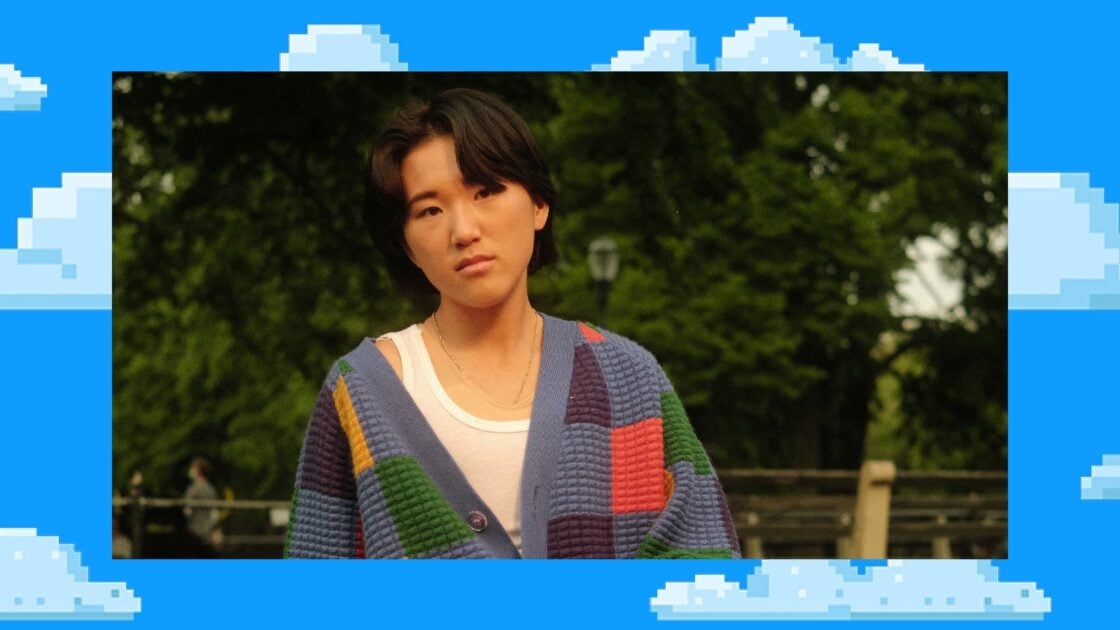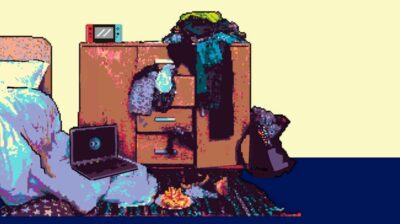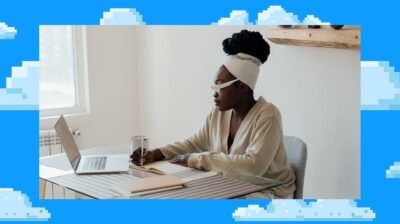Making the first step to healing my depression
Realising that they were experiencing depression, Marie started on a healing journey involving therapy and social media.

I am glad that we live in a time where mental health is discussed more and that we can openly discuss going to therapy and getting help. I thought it might be worth sharing my journey of getting the help I needed when my mind was my own worst enemy.
The strangest thing is that I vividly remember the exact day when I had my first depressive episode. I was 17, at the end of finishing college in the UK and my two best friends at the time decided to make plans right in front of me purposefully excluding me. They then spent the entire day, planning out how they were going to spend it and I was just standing there, listening quietly and feeling so incredibly low.
So the day of their plans came and I was overcome with this intense sadness, so strong that I wasn’t even able to leave my bed. All I could do was lay on top of my covers. I spent a good few hours just staring at my ceiling wondering why I wasn’t “good enough” for my so-called friends.
Discovering what caused my depression
That one moment was just the trigger of my depression coming to the surface but overall it was a build-up of things that happened to me growing up that led to me developing depression. Bullying in school for many many years, my dad passing away under horrible circumstances when I was very little, countless heartbreaks and then of course, the global pandemic that sent most of us spiralling I am sure.
But I continued brushing my problems under the carpet and pretended everything was fine. And obviously, everything was not fine in the slightest. I had anxiety and countless panic attacks, a lot of them brought on by large crowds and social settings. At the time I was big into acting and went to classes for that, but sadly that just ended up making it worse. Being so openly vulnerable in front of people while all their attention was on me was horrific to the point I almost blacked out multiple times.
Then the pandemic happened and I have never felt more scared and isolated. But I also have to say a few months into lockdown and I never felt happier about my mental health. I was able to really think about my future and what I wanted and spend so much time with my own mind that I worked out a lot of the things that have hurt me over all these years. I thought I had cured my depression. And then I fell in love.
At the start of covid I got out of a long-term relationship and for the first time in years I felt I was able to do whatever I wanted. Though the relationship was great at the start, and I am forever grateful that it happened, it had a massive strain on my mental health.
Little did I know that shortly after the breakup, I fell in love and to this day I believe that a new person was the motivation for my healing journey. I moved to Ireland, a country I love more than anything and want to grow old in, and got my dream job in the film industry, yet something didn’t feel right. I am lucky I grew up in a family where mental health is an open topic. Depression ran in my family so the idea of going to therapy wasn’t frowned upon, instead, it was even recommended by family members. It wasn’t until early 2022 that I realised that I needed help.
My therapy experience
At university I had brief counselling due to living with a flatmate who was terrorising us to the point where we were afraid for our lives, even having to call the police at one point. Just these handful of counselling sessions did something for me. So then in 2022 after crying daily about heartbreaks and all the worries that adult life brings, I looked into therapy.
I started with group counselling which ended up being incredible, hearing from other people also struggling made me feel less alone. And then I started one-to-one sessions with a therapist. She taught me about attachment styles, which helped me understand a lot about my relationships and feelings towards others as well as my own behaviours, and little coping strategies for when I was having a panic attack. The one strategy that to this day still really helps me is when your mind is so loud that you can’t concentrate or you are in the middle of a panic attack, find an object, preferably one with a lot of details, and describe it either in your head or out loud. Just having to focus on this task pulled me out of my panic state countless times.
Going to therapy was like a switch was flicked in my brain. I was able to work through trauma and my sleep anxiety and received a few diagnoses. Since then, I have had a lot of discussions with people who wondered why I was so desperate to get diagnosed. For me, knowing the terminology for certain mental health conditions like depression or ADHD, makes me realise that there is a valid reason for why I am thinking and acting a certain way. I was able to live with it and make changes in order to accommodate these conditions. Even though I had to stop therapy as it was starting to become a little expensive, to this day I know how to deal with my depression.
I can recognise when feelings of depression are coming on and can say to myself “this won’t last forever, it will pass” so I can continue with my day-to-day life.
I have been out of therapy for some time now, but I am keen to get back to it. For a while, it was impossible to go due to my job taking up most of my week and no one was doing sessions on weekends.
Recently I talked to some friends who went to therapy in the past and stopped. I realised it is because they ended up not feeling comfortable with their counsellor/therapists. That made me realise that it is okay to try a few different people until you find one that fits your needs and makes you comfortable opening up fully. I find this important, as in my experience, therapy can only help if I am able to be 100% vulnerable. I was incredibly lucky that I had a therapist that I could say anything to.
Using TikTok to speak out about mental health
I also ended up taking to social media to talk about my mental health, heartbreak and loneliness, TikTok being my favourite place. So many people reached out to me saying my videos helped them. I also received a lot of hate from people. People made fun of me for crying publicly, and insulted me for being open about my dating life etc. This definitely didn’t help my mind at all and I took a long break from it after being embarrassed that friends, coworkers and even bosses had found my account. Eventually, I realised that there was a reason I was making these videos, I was reaching people, and helping them to feel less alone. For every 5 trolls making fun of me, I had one person that told me that watching my videos made their day and helped them on their recovery journey. That made all the making fun of and insulting me worth it for me.
My mental health recovery may not always be straightforward
It is important to note that mental health recovery is not a straightforward journey and it is not easy whatsoever. Owning up to yourself that you need help is difficult. And even if I feel so much better after a few therapy sessions and I feel healed, it is not that simple.
It will take a lot of work and dedication, a lot of pain, tears and times when I want to give up, to reach healing and I myself am nowhere near healed. I had a lot of lightbulb moments, and I have become much more self-aware and can see my issues from an outside perspective.
Feeling overwhelmed and want to talk to someone?
- Get anonymous support 24/7 with our text message support service
- Connect with a trained volunteer who will listen to you, and help you to move forward feeling better
- Whatsapp us now or free-text SPUNOUT to 50808 to begin.
- Find out more about our text message support service
If you are a customer of the 48 or An Post network or cannot get through using the ‘50808’ short code please text HELLO to 086 1800 280 (standard message rates may apply). Some smaller networks do not support short codes like ‘50808’.






